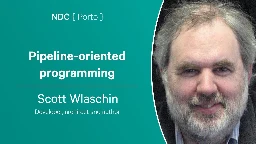Konilo: a small, pragmatic personal computing system written in Forth and running on a tiny virtual computer
 Andy @ Andy @programming.dev Posts 187Comments 356Joined 2 yr. ago
Andy @ Andy @programming.dev Posts 187Comments 356Joined 2 yr. ago

Andy @ Andy @programming.dev
Posts
187
Comments
356
Joined
2 yr. ago
xmq: Convert xml/html to a more human readable/editable format (xmq/htmq) and back. Can also work with JSON.
Using broot as an fzf-like path completer and interactive folder jumper in Zsh
Stem: an interpreted concatenative language with a foreign language interface
Pipelined Relational Query Language (PRQL, pronounced "Prequel")
Pipeline-oriented programming - Scott Wlaschin - NDC Porto 2023 (F#)
The Perl Weekly Challenge is a great source of practice problems
Locked Removed
Any good alternative to Niagara Launcher?




Yup, I understand. That's why I've not put them in the concatenative section.
Thanks, maybe I'll add them to the sidebar! I hadn't heard of Koka.
If you have a suggested heading/description to replace "partially concatenative" I'm interested. Function chaining? And I'm not sure but maybe execline is actually concatenative and needs to be moved out of that section.